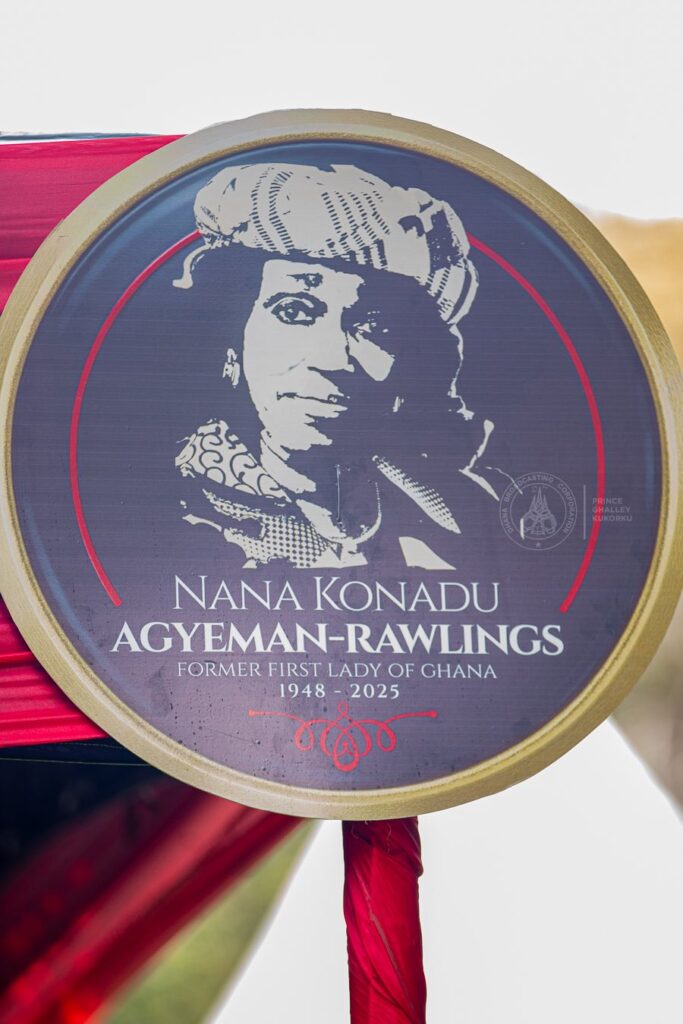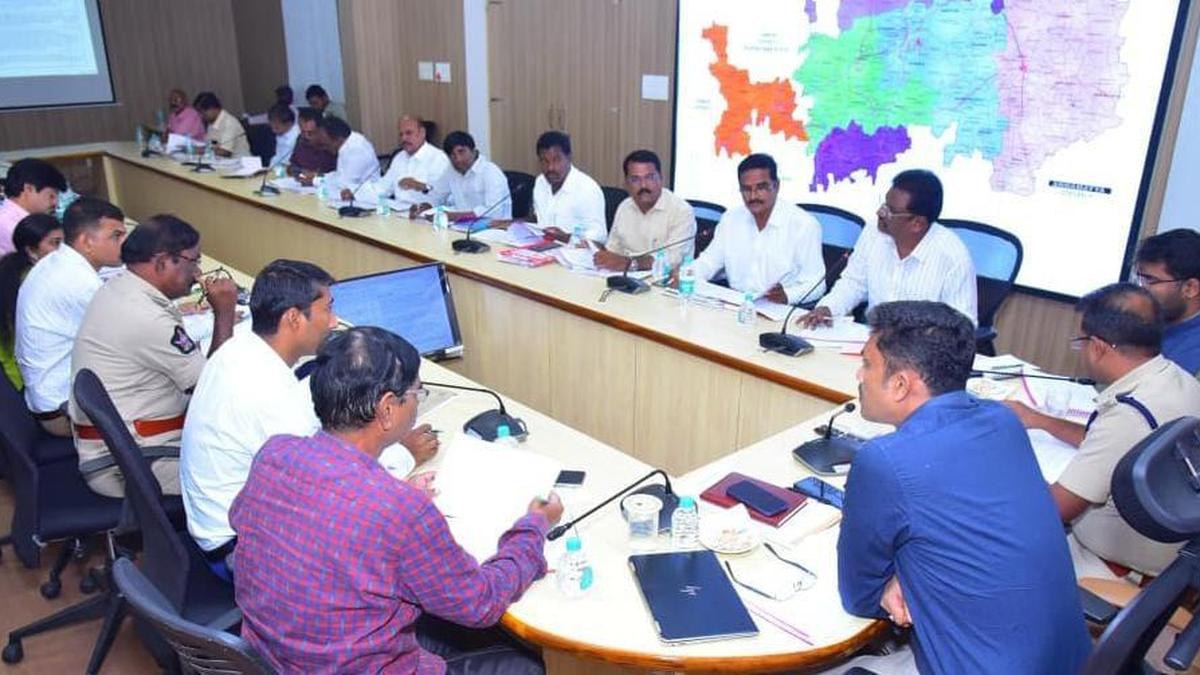Copyright ghananewss

By: Nana Karikari, Senior Global Affairs Correspondent The passing of Nana Konadu Agyeman-Rawlings, wife of Ghana’s longest-serving head of state, Jerry John Rawlings, continues to be a moment of national grief, its complexity underscored by the recent, high-profile visit of President John Dramani Mahama (NDC) to the family on October 28th. The visit served as a potent political act, affirming that her historical stature transcends the bitter political divides that defined her later years. The President’s explicit assurance that “The state will give her the full honours she deserves as a former First Lady and mother of the nation” immediately elevates the conversation from eulogy to a definitive assessment of her colossal influence. Her legacy is one of empowering millions while navigating the brutal, patriarchal currents of post-colonial governance. Unprecedented State Recognition and Cross-Partisan Solidarity The national reaction, defined by three days of national mourning and flags flying at half-mast, formally recognizes her distinguished service to the nation. The solemnity of the state acknowledgement—which includes the visit by the Minister for the Interior, Muntaka Mohammed Mubarak, who described her as an “extraordinary woman and a visionary leader” whose transition should be seen as “God’s will”—demonstrates her significance eclipses decades of bitter political rivalry. The depth of national solidarity is further cemented by the reaction from the traditionally adversarial opposition New Patriotic Party (NPP). The party’s Deputy General Secretary, Haruna Mohammed, described her as a “towering national figure who contributed immensely to Ghana’s democratic and social development,” solidifying the consensus that her influence transcended the partisan divide. Architect of African First Lady Power: An Unbreakable Record Nana Konadu Agyeman-Rawlings was the architect of the modern, politically active First Lady in Africa. Her nearly two-decade tenure fundamentally transformed the role from a decorative appendage to an operational center of power through the mobilization engine of the 31st December Women’s Movement (31st DWM). President Mahama highlighted her historical singularity, noting that her “19 solid years” as First Lady is a “feat he says no one can ever break under the current constitutional system.” This extended influence allowed her to make a deep, lasting impact through programmatic work. This influence pushed through landmark legislation, notably the 1985 Intestate Succession Law (PNDC Law 111), which drastically shifted inheritance rights in favor of surviving spouses and children. Crucially, the DWM’s advocacy played a major role in Ghana becoming the first country in the world to ratify the United Nations Convention on the Rights of the Child (CRC) on February 5, 1990. Furthermore, her movement helped spearhead the outlawing of harmful cultural practices like Female Genital Mutilation (FGM) and ritual servitude (Trokosi). Her foundational social legacy is also built on educational access. The 31st DWM is credited with establishing over 870 pre-schools and early childhood development centres across Ghana, prioritizing the education of girls as the key to long-term empowerment. The grassroots economic impact remains her most tangible legacy. As President Mahama affirmed, “Even up to today, when you go around the country on the campaign trail, you see evidence of her work,” citing enduring income-generating projects such as oil palm extraction and gari production ventures that continue to benefit women and their families across Ghana. This is the foundation of the popular reverence for her, captured by the market trader in Accra who said: “Ohemaa (Queen) was tough, but she made us tough too.” The Controversial Blueprint and Ultimate Reconciliation This political power was not without its shadows. Critics labeled her administration a form of “femocracy”—a term used in academic research to describe the appropriation of women’s empowerment narratives to advance self-seeking political interests. As a Nigerian political analyst, Dr. Chinwe Obasi, noted: “Konadu was one of the original ‘Iron Ladies’ of Africa.” Her ultimate act of defiance was the creation of the National Democratic Party (NDP) after losing the internal leadership bid for the NDC. This split was fueled by an ideological struggle, with the Rawlingses accusing the then-NDC administration of betraying its foundational revolutionary tenets of probity and social justice. It is also important to note the political turbulence that followed the NDC’s 2001 loss of power, where her Movement was subjected to what some allies described as a politically motivated investigation by the subsequent administration. In a remarkable and deeply symbolic political gesture just months before her death, the governing National Democratic Congress (NDC) officially restored Nana Konadu Agyeman-Rawlings to her rightful place as the party’s Founding Mother on June 22, 2025. This final, deeply moving act of political reconciliation underscores the undeniable, irreducible significance of her contribution to the party and the nation, providing a critical closure to the decade-long schism. The Legacy of Defiance: A Presidential Pioneer Her run for president in 2016 and submission of nomination forms for the 2020 election on the ticket of the NDP stands as a singular act of political will, challenging the entrenched, male-dominated structure of Ghana’s two-party system. Her 2016 bid, which made her the nation’s first female presidential candidate, was the ultimate challenge to patriarchy. (Correction: While she filed nomination forms for 2020, her campaign was largely suspended following her husband’s death weeks before the poll.) As Dr. Chinwe Obasi concluded, her presidential campaign was an “act of sheer political will.” Her candidacy irrevocably proved that the highest office was within the reach of Ghanaian women. Continental and Personal Tributes Beyond the political theater and legislative victories, Nana Konadu Agyeman-Rawlings holds a place in the collective memory as a definitive political matriarch. The stature of her continental influence has been definitively affirmed by the Presidential Centre for Women and Development (PCWD), led by former Liberian President and Nobel Laureate Ellen Johnson Sirleaf, who hailed her as “a formidable advocate for women’s rights, whose vision and courage helped transform the landscape of gender equality in Ghana and beyond.” On a personal note, Nana Kwame Bediako, founder of the New Force Movement, captured the deep connection many felt toward her as a matriarch: “Oh no… my heart is broken. Who will give me those gentle nudges again, those whispered teases wrapped in wisdom, followed by laughter that could lift even the heaviest heart?” Her passing closes a complex, vital chapter in Ghana’s Fourth Republic. The conversation now shifts from eulogy to defining the actual contours of a political and social legacy that, for better or worse, Nana Konadu Agyeman-Rawlings irreversibly changed the role of women in the national life of Ghana and served as a blueprint for political mobilization across Africa. Source link



